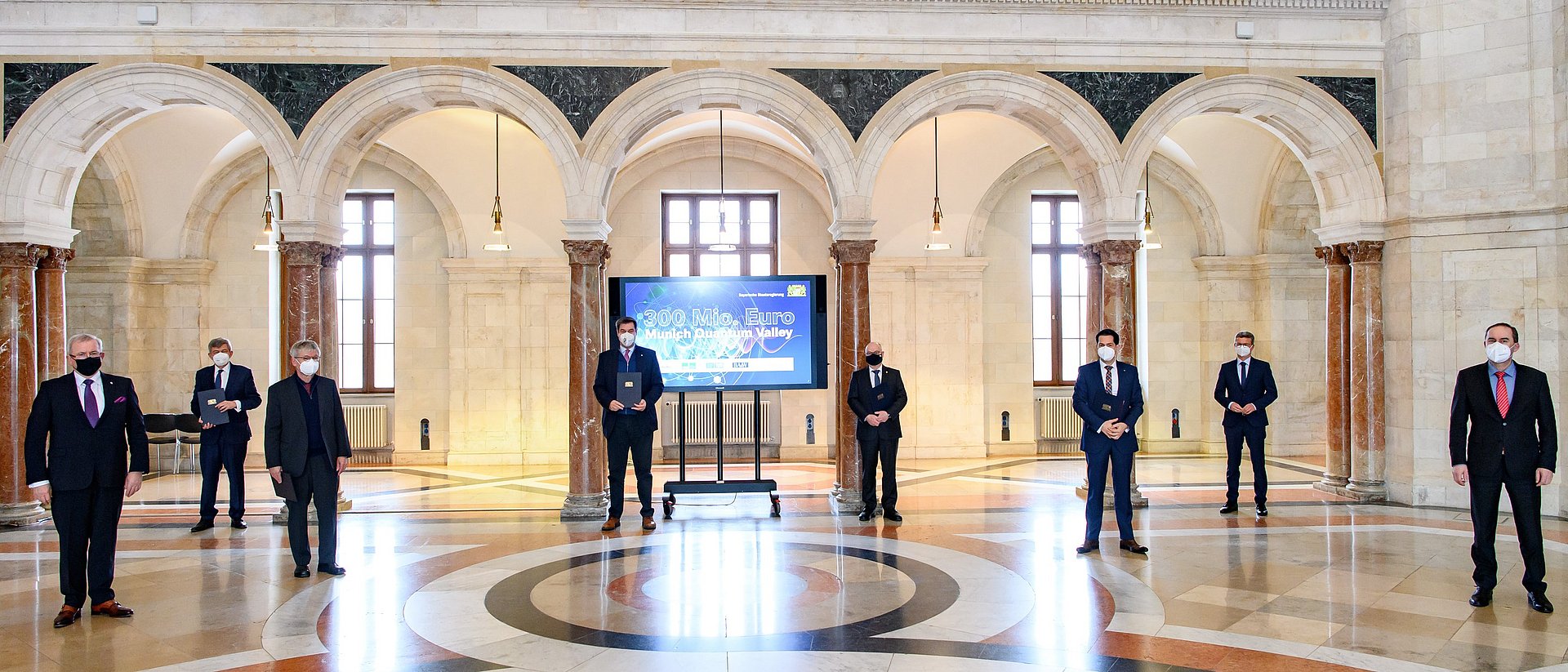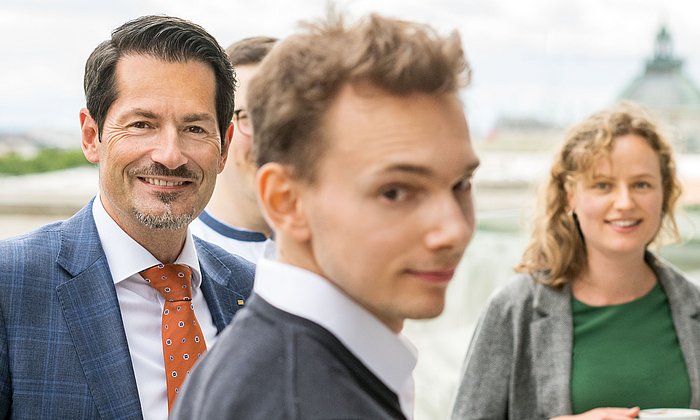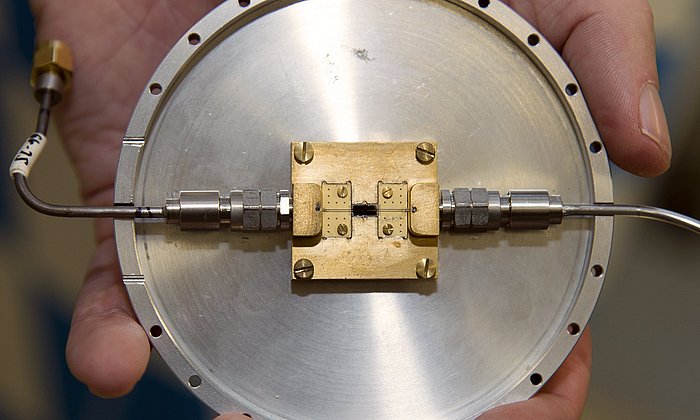Bavaria consolidates quantum technology strengths
Munich Quantum Valley points the way to the future

TUM President Prof. Thomas F. Hofmann highlights the significance of the new joint project: "Quantum Valley Munich builds on the outstanding achievements of Munich as the birthplace of German quantum research and, completely in line with our ONE MUNICH strategy, consolidates our wide spectrum of strengths across institutional boundaries. Together we are creating an ecosystem for quantum technologies which is among the best in the world and which will attract international scientific talents to Bavaria."
The Munich Quantum Valley partner organizations intend to move the development of quantum science and technology ahead over the next ten years on national and international levels. In addition to the Technical University of Munich, members of the initiative include the Bavarian Academy of Sciences and Humanities, Fraunhofer, Ludwig Maximilian University of Munich and the Max Planck Society.
Pending the approval of the Bavarian State Parliament, the Bavarian government plans to provide a total of 300 million euros, with 120 million euros available as early as 2021 and 2022. Munich Quantum Valley will build on this robust foundation and will apply for funding from the German federal government, which is investing two billion euros under the "Zukunftspaket Deutschland" in support of the further development of quantum technologies.
Research, development and education
The partners will found a joint Center for Quantum Computing and Quantum Technologies (ZQQ) as well as a Quantum Technology Park and will increase emphasis on training and continuing education both for talented young individuals and for established experts from the industry sector.
Science and industry will define priorities in the research and development of quantum sciences and technologies at the ZQQ and will coordinate funding for excellent projects in this area. Support could thus for example go to scientists at Bavarian research sites beyond Munich searching for new materials with quantum simulators, working on quantum metrology methods for highly precise electric and magnetic field measurements or developing interception-proof quantum cryptography processes.
In the years to come the ZQQ will also build a quantum computer capable of handling calculations which are impossible with conventional super computers. In the long term this is to serve as the basis for commercially viable quantum computers whose computing power can be made available through cloud access. The ZQQ will also create software for quantum computers and interfaces to conventional computers.
Turning research results into innovative products
At the Quantum Technology Park the Quantum Valley partners will create the high-tech infrastructure needed by research institutes, start-ups and established technology companies to develop quantum technologies at internationally competitive levels. The Quantum Technology Park will include cleanrooms with nano-production and thin-layer production equipment as well as modern development and test laboratories.
This unique infrastructure will for example also be available to researchers from start-up companies collaborating with the TUM Venture Lab Quantum, currently being set up, to turn research results into innovative products more quickly.
Training and continuing education of expert research and industry staff
The success of Munich Quantum Valley will however be contingent on outstandingly trained scientists and highly qualified experts from industry. Training will center on handling intellectual property, with quantum technology modules for curricula combining technology and management as well with programs for start-up entrepreneurs and continuing education for expert staff from the industry sector.
Bavaria and its Munich innovation hub are already among the world's leading locations for training talented young individuals in quantum science and technologies thanks to their university and non-university institutions. Munich Quantum Valley will now elevate these activities to the highest international level.
Technical University of Munich
Corporate Communications Center
- Ulrich Meyer
- presse@tum.de
- presse@tum.de
- Teamwebsite


